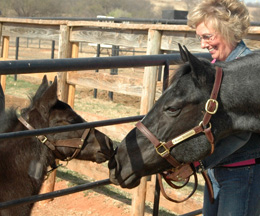 The pros, cons and technology of cloning were discussed by a panel of experts today at the American Quarter Horse Association Convention in San Antonio, TX, which runs through March 9.
The pros, cons and technology of cloning were discussed by a panel of experts today at the American Quarter Horse Association Convention in San Antonio, TX, which runs through March 9.
The special cloning forum came about as a result of a proposal to allow the registration of cloned foals. In the past three years, a number of high-profile Quarter Horses have been cloned, including Smart Little Lena and Royal Blue Boon (pictured with her clone Royal Blue Too), the all-time leading sire and dam of the cutting industry.
Forum panelists included Katrin Hinrichs, a veterinarian involved in equine cloning at Texas A&M University; Sharon Spier, an epidemiologist at the University of California-Davis; George Seidel, a professor specializing in biomedical sciences at Colorado StateUniversity; and Blake Russell, vice president of ViaGen, a commercial cloning company.
Dr. Hinrichs addressed some technical aspects of the cloning process and noted that all 12 foals produced via cloning at Texas A&M last year appear to be normal, healthy individuals.
Dr. Spier outlined the development of six genetic diseases, including HERDA; HYPP; GBED; and PSSM, which would have not occurred in nature normally, but have gotten a grip on modern bloodlines through what she refers to as the “popular sire syndrome.” This narrowing of the gene pool should be a concern to Quarter Horse breeders, according to Spier, who fears that cloning could worsen the problem.
Russell enumerated advantages to cloning, such as being able to perpetuate genetics of deceased animals; bring great performing geldings into the gene pool; and increase the population of superior animals. His reference to cloning as a tool to “leverage” the highest valued genetics might have hit a sour note, however, in an economy struggling as a result of leveraged mortgages.
Dr. Seidel, who had the task of trying to explain the relationship of nuclear DNA and mitochondrial DNA in cloning, concluded his presentation by pointing out that, “science is only one way of thinking of things.” He also voiced the question that seemed to be the elephant in the room: “Is cloning a tool too dangerous to use?”
Audience questions followed the presentations, including one to Blake Russell, in reference to the discrepancy between the cost of cloning a horse ($120,000) and the cost of cloning a cow ($20,000). Russell explained that the high cloning volume for cattle versus horses, as well as equine-specific research costs, account for the difference.
Carol Harris, 86, a longtime breeder of Quarter Horses, received resounding applause when she voiced her opposition to registration of cloned foals. “Our association must protect us from the power of greed,” she said.
Helen Groves, 82, was the last person to speak from the audience. It was Groves’ father, Robert Kleberg, who helped found the AQHA and whose Old Sorrel line of horses, developed by Kleberg on the King Ranch founded by his grandfather, Richard King, contributed so much to the foundation of the breed.
“Greed can be a very strong motive,” said Groves. “And I think we should be very, very careful about changing the rules. If someone wants to do this study, that’s okay. Do the study. But don’t mess with your organization until you have considerably more information.”
